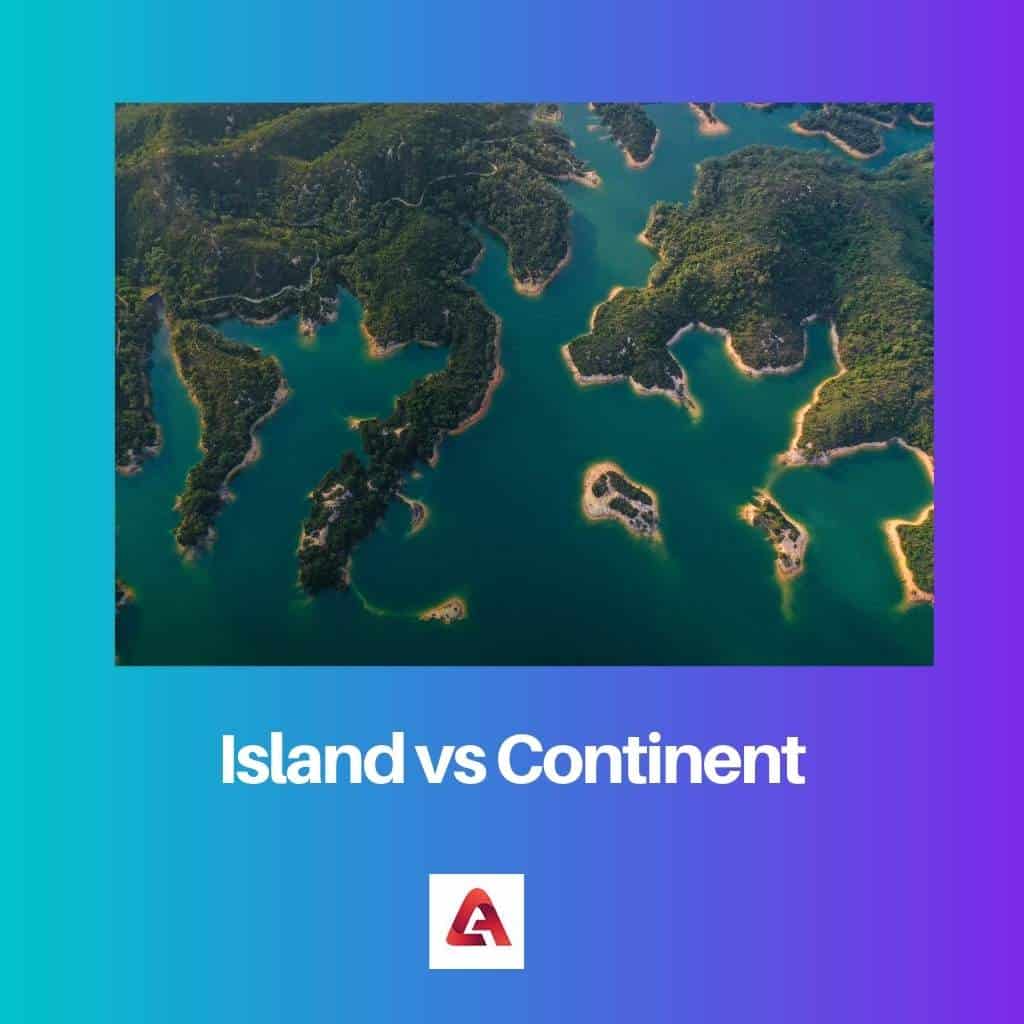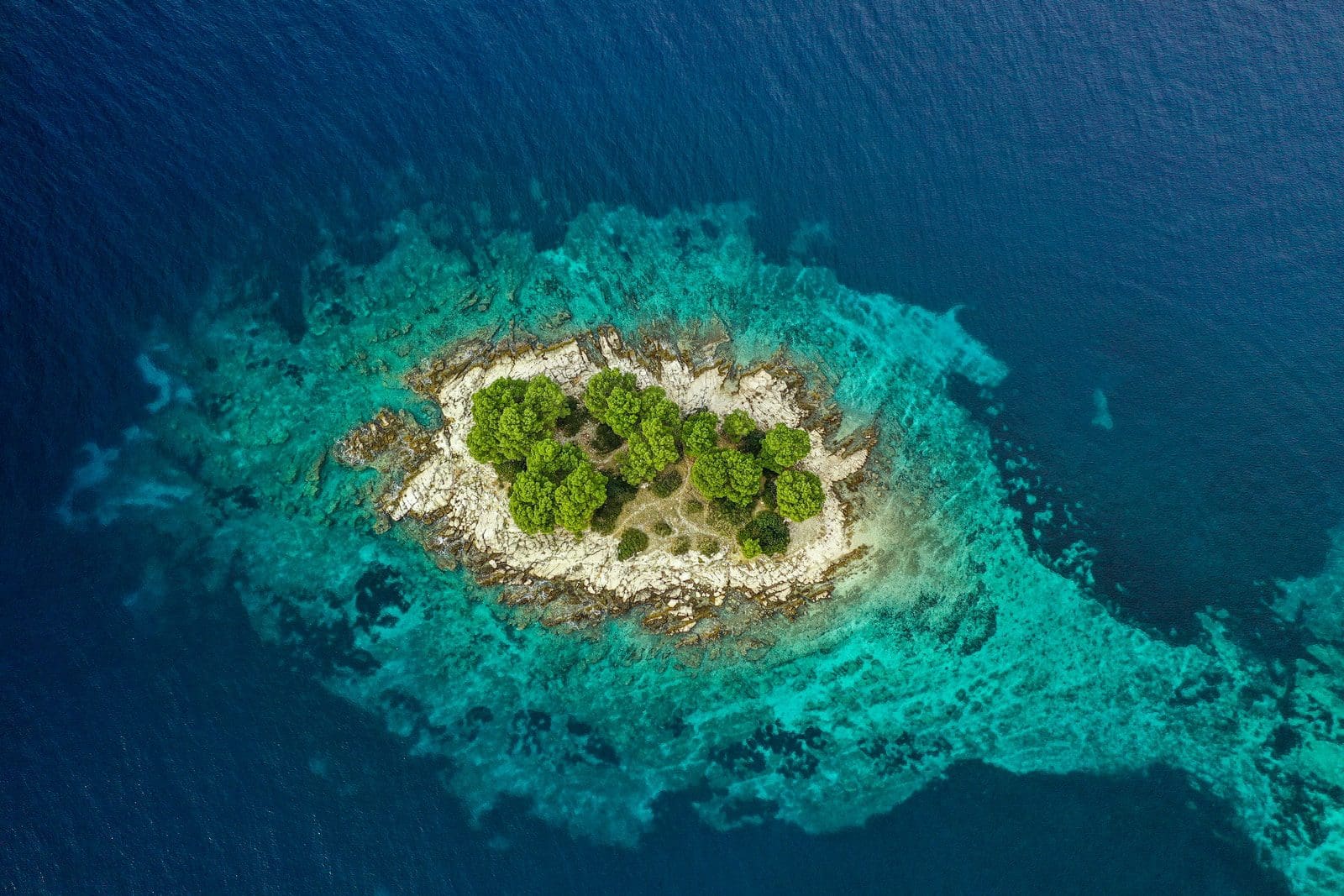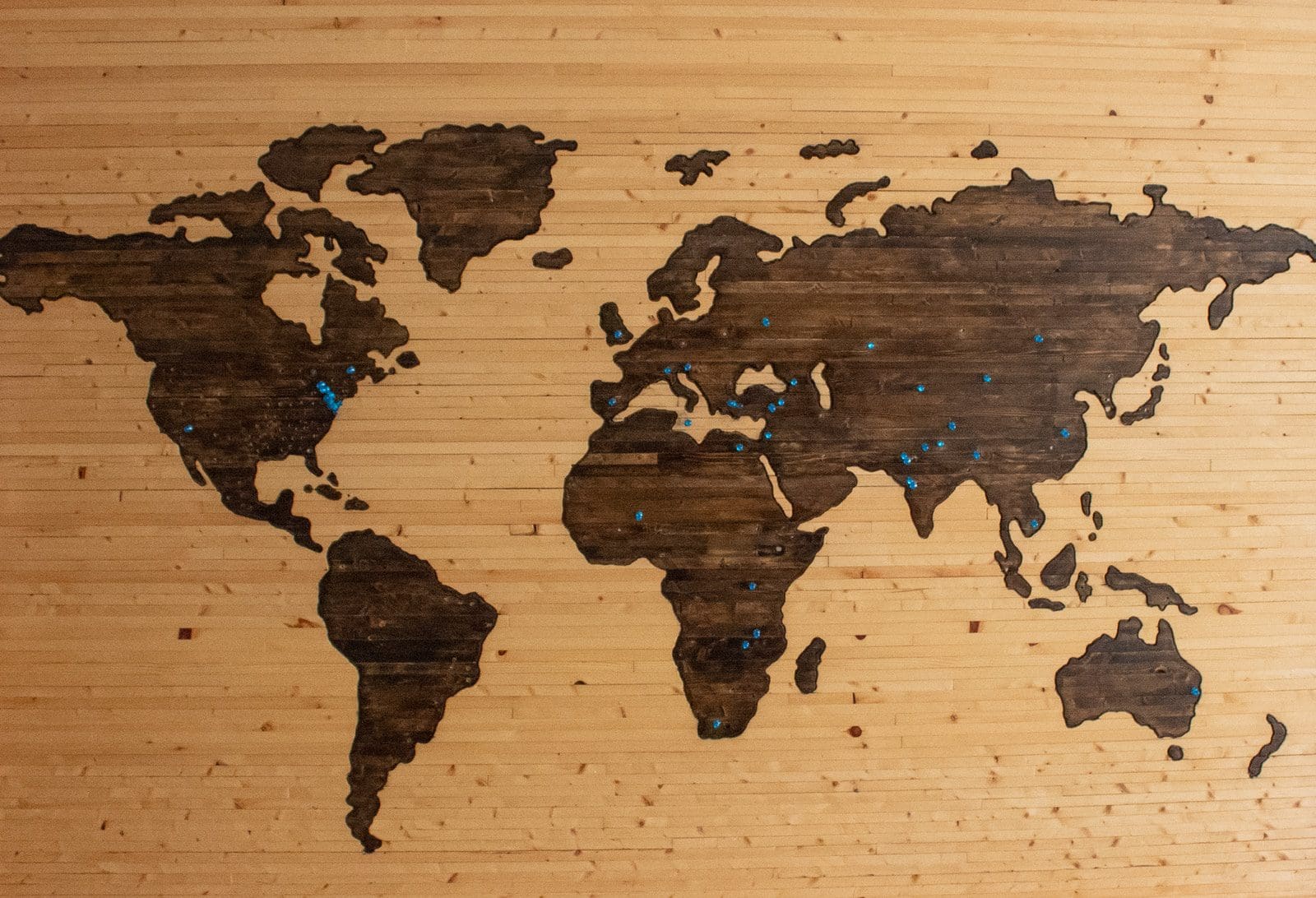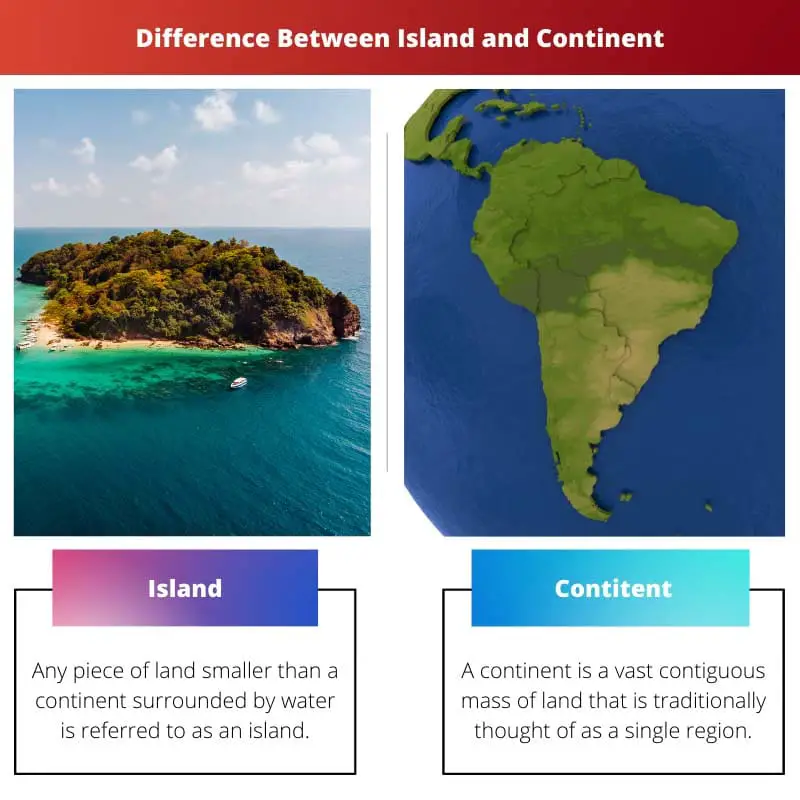It is very easy to understand which one is an island and which one is a continent by observing the map or globe. The main difference between these two phenomena is, indeed, their sizes.
Key Takeaways
- An island is a piece of land surrounded by water on all sides, while a continent is a large landmass physically connected to other land masses.
- Islands are smaller than continents and have a unique ecosystem, while continents are much larger and have diverse ecosystems.
- Islands are formed by volcanic activity or shifts in tectonic plates, while continents have been shaped by millions of years of geological processes.
Island vs Continent
The difference between Islands and Continents is the contrast in size between them. Continents can cover enormous areas of land and have various nations, while an island is a small landmass enclosed by bodies of water. Apart from the apparent size difference, continents differ from islands as they have a variety of landforms and a variety of fauna and flora. Since the landmass is so big, many people from various cultures will coexist within their borders on the same continent. At every given time, an island can only hold a small number of individuals.

An island, by definition, can be defined as a piece of land whose size can range from as small as 3,300 square feet to as huge as 836,330 sq miles and is surrounded by a water body, preferably sea or ocean, but sometimes it can be an enormous lake too.
A continent is a vast landmass segregated from other continents by oceans. Only geographical borders separate these continents, limiting their landmasses to a specific region.
Comparison Table
| Parameters of Comparison | Island | Continent |
|---|---|---|
| Definition | Any piece of land smaller than a continent surrounded by water is called an island. | A continent is a vast, contiguous mass of land traditionally considered a single region. |
| Number | Almost around 18,995 | 7 |
| Artificial Creation | It is possible with proper technology and resource. | Not possible (For now) |
| Size | Smaller when compared with Continent. | Biggest landmass on Earth. |
| Examples | Andaman and Nicobar Island; Borneo and Taiwan | Europe, Asia and North America |
What is Island?
An island is a portion of a sub-continental area enclosed by a water body, i.e., Ocean and seas. Islands can sometimes be surrounded by enormous lakes as well.
Continental islands are landmasses that are located on a continent’s continental shelf. An archipelago, such as the Philippines, is a collection of geographically or geologically linked islands.
The word island arises from the Old English word ‘iegland.’ From ‘ieg’ or ‘ig,’ both suggest ‘island’ when used alone, but when used with -‘land’ carrying the modern equivalent of Eiland “island” in Dutch and Eiland “small island” in German.
There are no particular size standards that help one to distinguish between an island and a continent. The largest island is Greenland which approximately covers over 2.1 million km sq.
Artificial islands are developed on previously established “low-tide elevations.” Low Tide Elevations have naturally formed patches of land that are surrounded by and above water at low tide.

What is a Continent?
A continent is an enormous landmass that is made up of numerous considerably smaller landmasses. The expected or anticipated land area coverage of the cumulative of all continents is approximately 148,647,000 square kilometres or 57,393,000 square miles.
Up to seven regions are known as continents of the world and are defined by consensus rather than any specific criterion.
The continent is the term that belongs to areas of continental crust present on the continental plates. However, they incorporate pieces of continents, like Madagascar, that are not regarded as continents.
Oceanic Island is the term used to define the piece of the crust which comes up to the surface from the floors of the water bodies, i.e., oceans.

Main Differences Between Island and Continent
- When compared with a continent, an island is smaller. The continents are considered to be the biggest landmass on this planet.
- Examples of islands are Taiwan, Sakhalin, and Java. Examples of Continents are Asia, South America, and Europe.





